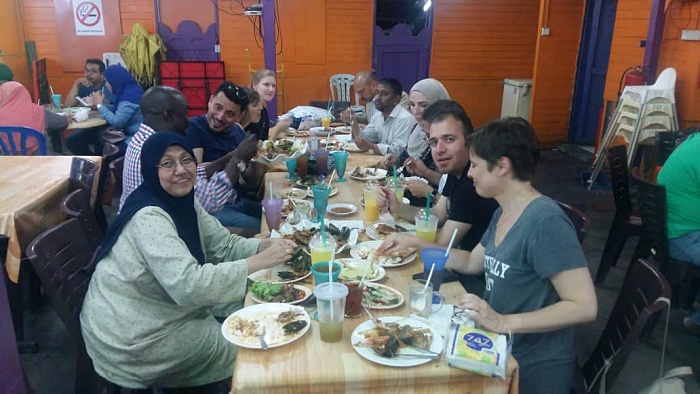Covid-19 Frontline Impact
Cramped conditions in the camps and fears over the spread of the virus suddenly made returning home the more compelling option in these times.

Frontline mediators are those insiders who have a keen understanding of conflict dynamics, deep relationships with the parties and the awareness of the nuanced language used to express those issue. Alternatively, the strength international mediators bring coming from outside a locality is a degree of distance from presenting issues, technical skills and at times the authority to give legitimacy to a process and catalyze buy-in.
That authority, given to an outsider by mandate or norms, can become a pitfall if used to influence more than the process. Using one's power to prioritize what issues are discussed or direct the parties toward a particular outcome will impact the sustainability of the peace agreement.
In addition, it is common to assume that being in a position of privilege equals having knowledge. Instead, it too often colors what we see, risks shaping our analysis to fit a dominant lens and lead to recommendations that outline our preferred outcomes. Outsiders may have geopolitical interests or use their power to select and block who sits at the table. This all adds up to a potential loss of impartiality which in turn affects the outcome.
A Mediator can have authority without being authoritative.
Insiders, on the other hand, also face several risks by getting involved. Being a member of a particular community can jeopardize other's perceptions of one's impartiality, risking the loss of their legitimacy. A frontline peace-maker can also be seen as betraying the in-group in their attempt to reach out beyond those boundaries. Community members after all hold trauma differently and not everyone is ready to make amends.
Collaboration between insiders and outsiders brought together in a balance of complementary skills and shared decision-making, is a powerful combination when rooted in the respect and value of one another's skills and talents.
For this to happen, mediators with privilege need to pull back and let locals lead the process. Finding strategies for countering dominant cultural norms expressed in a short attention span, preference for linear thinking and action-oriented planning, takes work.
When each team member is allowed to play their role, i.e. insiders leading and outsiders helping to ensure their success, successful, powerful and sustainable results can be achieved.
